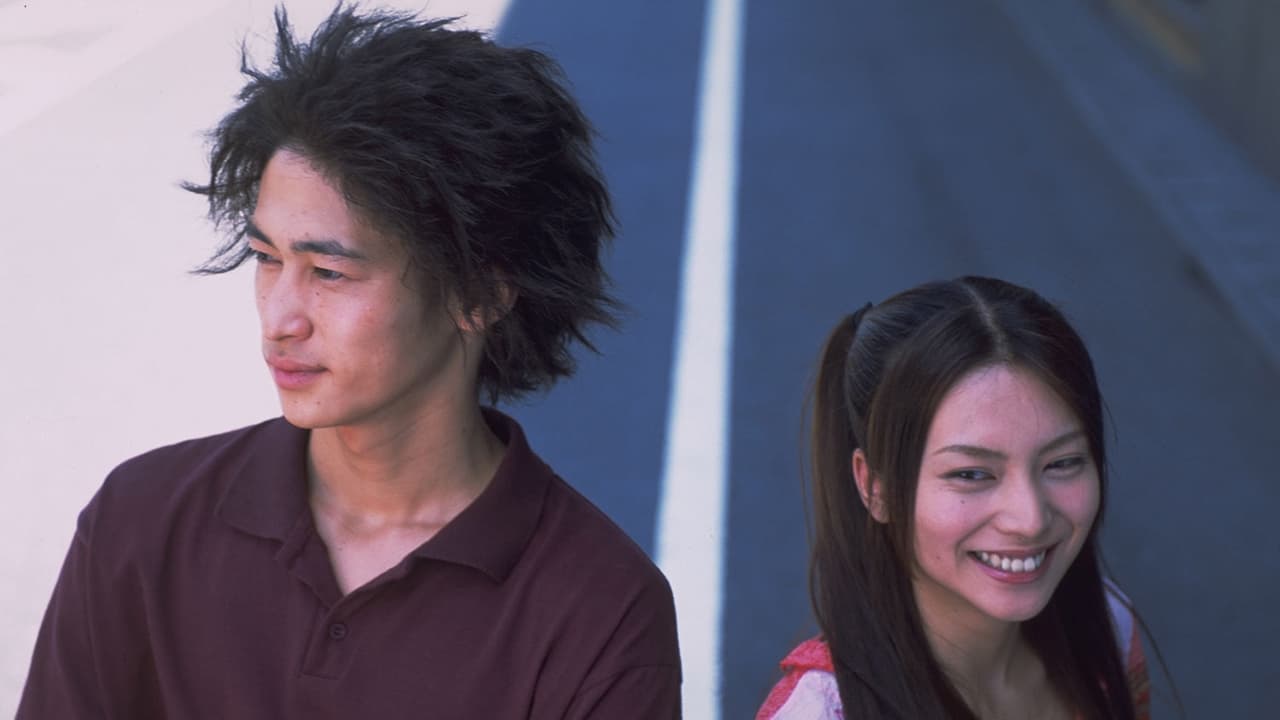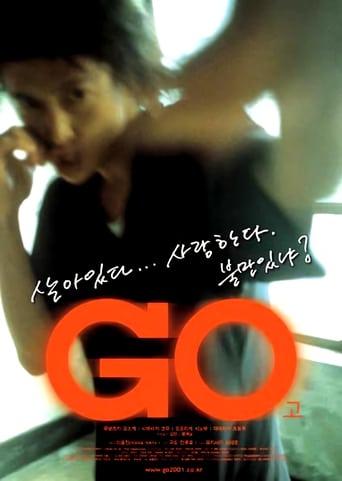

First of all, I loved this movie--loved it. It is a great portrayal of how strict the laws are against "aliens" in Japan. Told from the point of view of a Japan-born Korean Sugihara, Sugihara endures torment and the possibility of lost love simply because he is a Japan-born Korean. It does not matter that he attends a Japanese school (so that he is able to attend University as Korean schools are not recognized by Japanese higher education), speaks fluent Japanese, and has never even been to Korea, he will never be recognized as a Japanese citizen and thus must have his "papers" on him at all time. Despite how fresh and innovative the topic of discriminated foreigners is portrayed in the film, the female characters are discriminated against just as much as any Japan-born Korean. To put it bluntly: all of the female characters--all of them--are idiots. Sugihara's mother, while providing some comedic relief, is stupidly naive. Sakurai's mother asks questions after they've already been answered and discussed in her presence--as though she is too dim to understand. A friend of Sugihara believes everything that she is told no matter how ridiculous. Patriarchal comments are made about women such as "She couldn't cook but she was really cute." Perhaps the most disappointing female character of all is Sakurai--the main female character of the film. Apparently, even in modern-day Japanese films, the female love interest has to be a neurotic--much like many American films'female love interests. She charms the audience not through her wit or intelligence, but through her peculiarities. This would almost suffice if there was not such a let down in knowing that her attraction to Sugihara stemmed from the fact that he beat people up. A woman impressed by male strength--how original. Even in the end when Sakurai proves to think for herself after all, the beauty of her realization is upstaged by Sugihara's screaming at her. For such a brilliant, beautiful film with such clear-cut messages about being born into discrimination, there should have been at least one female character who was not discriminated into the category of being too dumb to identify with simply because she is a woman. A very big let-down for such a great work.
... View MoreWhen I first saw this movie I was kind of turned off by it. It can be kind of confusing the first time around. But as with most good things it gets better with time and familiarity. The movie basically revolves around a Japanese born but fully north Korean teenager who struggles to find his place in society and come to terms with his tough father. As a Japanese-born Korean or "zainichi" he often feels alienated both by Korean and Japanese culture. The movie follows the trials and transformations in his life and his desire to find who he is and where he belongs. I think a lot of people who are the second or third generation of immigrant families will really get this movie. It's like being stuck between two worlds sometimes. But regardless of background people will be able to relate to the story (manic as it is). If you like say fight club, you will probably like this movie. There are quite a bit of action and fight sequences, a lot of introspection, and also romantic elements. The movie tends to segregate these elements to some extent which makes the film seem lop-sided but in the end everything balances nicely. This is probably one of my favourite movies, Japanese or otherwise.
... View MoreI love this movie. Not only is Yusuke Kubozuka the man but this movie is just done really really well. It is a very good combination of stylistically surreal scenes such as the basketball scene and the race against the train, along with a plot that delves into issues that are very prevalent in Japanese society. A good friend of mine has experienced quite a bit of this prejudice in Japan being of partially Korean descent. It's actually been a little while since I've seen the movie so I can't really comment on too much of the specifics, but I just remember it as being a very intense experience that came through on a number of levels, combining an interesting love story, cool action sequences, humor, social commentary, and a coming of age story all into one amazing movie. Also it was great to see the actor who played the father again because he was so cool back in "Tampopo".
... View Morei saw this film at the berlin film festival where it was part of the 'panorama' showings (not in the actual competition itself). it was perhaps unhelpfully billed as a film about the 'taboo of relationships between japanese and koreans'. i wouldn't say that it was particularly about that at all - more like a teenager's struggle for identity.i found it to be an excellent film. funny, touching and well-played. it deserves some international success.
... View More